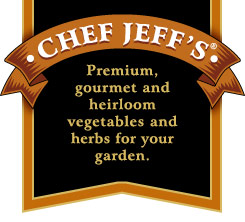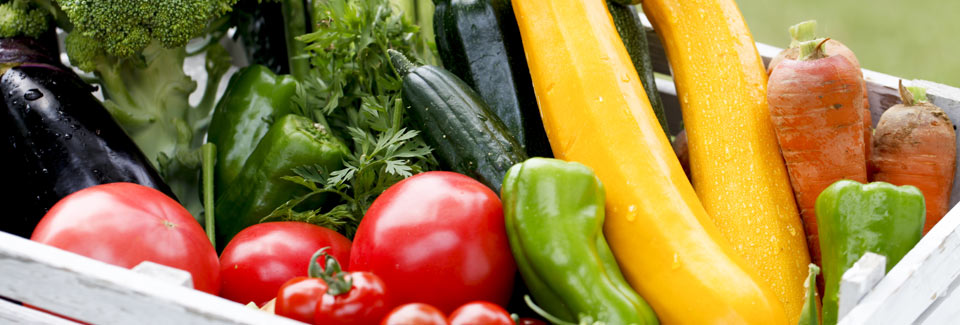Where is the best place to plant vegetables?
The ideal spot in your yard is sunny, flat, has well drained soil, and is protected from wind and animals. All vegetables need sun to fruit, a flat area will help plants get the water and nutrients they need, and you don’t want pets or other garden visitors eating your veggies! The soil should be well tilled and free of weeds.
Why should I put a cage around my tomatoes?
Most varieties of tomatoes are “indeterminate”, which means they will continue to grow taller all season. Any tall growing vegetables will benefit from a cage, to support their growth and keep fruit away from the ground.
Do I need to mulch around my vegetables?
You don’t need to, but it is a good idea. Mulch serves many beneficial purposes, such as helping soil maintain moisture levels, and keeping weeds down. With a row of mulch, you’ll always know where it is safe to walk!
Can I grow vegetables in containers?
Certainly! As most vegetable plants have large root systems, it’s best to start with a container that is at least 12” across and 12” deep. Nearly any vegetable that does well in the ground can be successful in a container as well. Be mindful of moisture levels, as smaller containers can dry out very quickly, and larger containers may drain excess moisture very slowly.
How often do I need to water my vegetable plants?
Although they may not need water every day, check your plants for water needs daily. If the soil looks dry, or the plant has droopy leaves, it probably needs a good soaking. It’s best to water early in the morning. Vegetable plants typically want an inch of water per week, more if it is very hot, or if they are producing fruit. It’s best to water the soil, not the fragile foliage or fruit.
Help! Something is eating my tomato plants, and it isn’t me!
Very few home vegetable gardens are immune to the Tomato Hornworm, a type of caterpillar that enjoys eating and destroying tomato, eggplant, and pepper plants. Although insecticide sprays do exist for this problem, the safest way to remove the pests is to do so by hand. To kill the tomato worms, drop them in a bucket of soapy water.
What are heirloom tomatoes?
Heirloom tomatoes are open pollinated, non hybrid tomatoes, which have been bred over the years in the traditional manner, with no genetic modifications for disease resistance or attractiveness. Heirloom tomatoes come in many colors and shapes, and have become popular in recent years due to their unusual looks and traditional tastes.
When is the right time to plant peppers?
Pepper plants are incredibly sensitive to cold temperatures. A frosty night can slow the growth or kill your plant. Depending on where you live, you may want to plant your peppers a few weeks after you have planted your other vegetables. As your pepper plant matures, you may notice some very large leaves at the top of the plant. Don’t cut them off, they help to protect the tender young peppers from harsh sunlight.
How do I know when my peppers are ready to harvest?
Technically, you can harvest your peppers as soon as you feel they are large enough to eat. However, you might want to wait a few more days. Peppers will mature the longer they are on the vine. Sweet peppers get sweeter, and mature to red, orange, yellow or purple, and hot peppers will get hotter, and mature to red, orange or yellow.
How much room do I need to grow pumpkins?
As a vining plant, pumpkins can easily and quickly take over your garden, as the vines can grow up to six inches in one day! An area that would normally fit 4 or 5 large tomato plants is probably the right size for one pumpkin plant. If you have limited space, or are planning a container garden, try miniature pumpkins in a five or ten gallon bucket. No matter what kind of pumpkin you are growing, remember they are heavy water uses. To help prevent powdery mildew on foliage, make sure to water the soil only, and avoid getting water on the leaves.
>I am growing melons, how do I know when they are ready to harvest?
Melon plants typically take 80-90 days to product ripe fruit (larger melons may take longer). When the stems begin to dry out, and the blossom end of the melon is a little softer than the rest of the melon, it’s ready to harvest and eat! If your melon is soft all over, it is probably over ripe.
How can I keep birds, rabbits and other small animals out of my vegetable garden?
There are many easy ways to keep animals out of your garden, without using harsh chemicals or sprays. A chicken wire or plastic screening fence and or cover can keep animals and birds away from your plants, and vine plants can be covered with a light layer of screening held down by rocks or wires. If you find rodents are burrowing through the ground to get to melons or pumpkins, place a wooden board under the fruit as soon as the skin has toughened up some. A sprinkling of black pepper or hot pepper flakes around the perimeter of the garden has also been known to keep small animals out. Container gardens are easy to maintain and can reward you with a bounty of produce and herbs!



